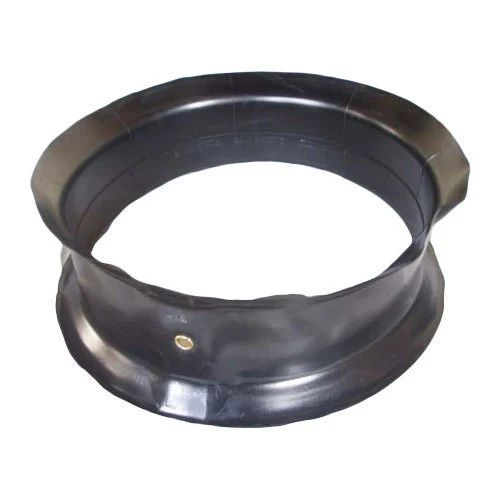Truck/ LCV Tyre Flaps
Rubber Tyre Flaps
Tyre flaps are installed on the Rim to prevent the Tube from any kind of damage and impairment as a result of getting into direct contact with the Metal rim.
These flaps are capable of bearing high heat and temperature.
Material of Construction: Butyl
Size Chart:
| Flap Size | Tyre Size | Weight |
|---|---|---|
| 20N | 12.00 - 20 RAD | 2.40 kg net |
| 20N | 11.00 - 20 RAD | 2.40 kg net |
| 20N | 10.00 - 20 RAD | 2.20 kg net |
| 20N | 14.00 - 20/355 RAD | 2.20 kg net |
| 20N | 14.00 - 20 | 1.82 kg net |
| 20N | 9.00 - 20 | 1.82 kg net |
| 20N | 9.00 - 16 | 1.314 kg net |
| 20N | 7.50 - 16 | 1.314 kg net |
| Radial | 2.25/75 R 15 | 1.16 kg net |
| Bias | 7.00/75 R 15 | 1.16 kg net |
| Bias | 8.25/7.50 - 15 | 1.16 kg net |
| Bias | 8.15 - 15 | 1.16 kg net |
| Bias | 28 x 9 - 15 | 1.16 kg net |

.jpeg?h=741a7354537314d61fb9e64f28fe2c78)
.jpeg?h=9693f6b6a1fd166c7ca66e50d00d88c3)
.jpeg?h=66af1e17bcdab2413b6056c5b87c3f2f)
.jpeg?h=66af1e17bcdab2413b6056c5b87c3f2f)
.jpeg?h=66af1e17bcdab2413b6056c5b87c3f2f)
.jpeg?h=66af1e17bcdab2413b6056c5b87c3f2f)
.jpeg?h=66af1e17bcdab2413b6056c5b87c3f2f)
.jpeg?h=66af1e17bcdab2413b6056c5b87c3f2f)